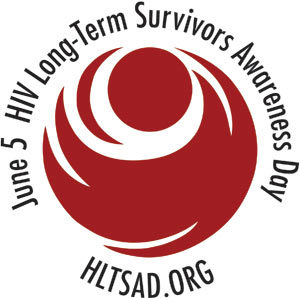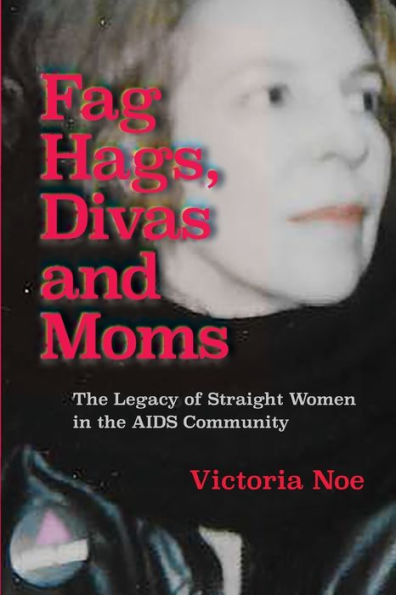HIV Long-Term Survivors Awareness Day
 June 5 is HIV Long-Term Survivors Awareness Day, so I’m sharing my essay, "Long-Term Survivor", that won the 2015 Christopher Hewitt Award for Creative Nonfiction from A&U Magazine. Since then I’ve written more and presented on the topic of moral injury in long-term survivors, something that is close to my heart. We can’t help each other until we recognize the challenges. And for me, that meant admitting that I had challenges, too.
June 5 is HIV Long-Term Survivors Awareness Day, so I’m sharing my essay, "Long-Term Survivor", that won the 2015 Christopher Hewitt Award for Creative Nonfiction from A&U Magazine. Since then I’ve written more and presented on the topic of moral injury in long-term survivors, something that is close to my heart. We can’t help each other until we recognize the challenges. And for me, that meant admitting that I had challenges, too.Long-Term Survivor
It’s only the past few years that that designation has become widely used. Hell, no one expected it would ever be possible. There was a time when my only prayer was to get through a week without reading the obituary of someone I knew or admired from afar.
Since many who have reached that milestone are also baby boomers like me, I’ve taken a special interest in their challenges. During a visit to New York, I attended a listening session at GMHC and was profoundly moved by stories of isolation and loneliness, especially from straight men and women who felt a unique stigma. But I was an observer, not a participant.
A few months ago, when Jeff Berry at TPAN (Test Positive Aware Network) announced The Reunion Project in Chicago, I told him I’d like to attend, though I wasn’t a long-term survivor.
“Yes, you are,” he insisted.
“But I’m not positive,” I insisted right back.
“But you were there.” I still don’t identify as a long-term survivor, but he was right: I was there.
I’ve been in and out of the community since about 1983. I started out volunteering and then became a fundraiser. The deaths of people I knew, mostly but not exclusively men, piled up during those early years. If I lost touch with a gay friend, I assumed it was because he was dying or already dead. I talked about my work with few people outside the community. To be a straight woman working for an AIDS organization in the late 80s/early 90s was as isolating as it gets.
I know: Elizabeth Taylor and Princess Diana, prominent public faces of straight women involved in the community. But most of us weren’t in the public eye. We were caregivers and social workers and advocates. We raised money, delivered meals and found emergency housing for those kicked out by their families. Our social lives consisted of work, fundraising events and memorial services. We did good work and had good intentions, but we were naïve: naïve about the emotional toll of our involvement.
Inside the AIDS community we weren’t always welcome, to put it mildly. We were told to our faces that we didn’t belong, called “breeders” and much worse. We were looked at with suspicion, as if our goal was to attain sainthood for working with modern-day lepers. After years of working in theatre with gay men, I was shocked to be treated with contempt.
We became pariahs in the outside community. “You’ll never get a date now” was my ex-boyfriend’s sneer when I told him I took my first staff position at an ASO. Turned out the asshole was right. Because in 1989, if I told a straight guy I worked for an AIDS organization, that was pretty much the end of the conversation. I went to my friends’ weddings and baby showers, but didn’t discuss my work.
Their attitude was always the same: “Why do you want to do that? It’s not about you.” They were right. I was HIV- then and now. I wasn’t at risk.
But I wanted to help so I kept at it: cranking out grant proposals, organizing fundraisers, showing up at memorial services. By the time I was married with a baby in 1994, though, I was cynical and angry and exhausted. I backed off.
For the next 17 years, I kept up with the medical miracles and observed World AIDS Day. Other than that, I was careful to keep my distance.
After a concussion ended my sales career in 2009, I embarked on something very different: writing. I began work on what became a series of small books about grieving the death of a friend. I assumed AIDS would be one of the topics, but gave it little thought until 2011, when Tracy Baim asked me to contribute an article about my experiences to Windy City Times’ “AIDS@30” series.
I remember sitting down at the computer, not sure I could remember much. I didn’t realize how much I’d deliberately suppressed. But before long my fingers could barely keep up. The anger surged so quickly and so dramatically that it scared the hell out of me.
People and events, places and conversations popped into my head. But what was most troubling to me – and still is – was the isolation. I was not on the inside of the community, not on the outside: somewhere in between, unable to identify completely with either side.
The extent of that isolation was slow to reveal itself. I reconnected with a woman who’d been a volunteer in the same organization where I was the development director. It was soon apparent that our experiences were eerily similar, but until that day – over 20 years later – we had never shared them.
In early 2013, I sent my mother a copy of my book. Now, my parents were always quite liberal in regards to the LGBT community. A gay man was my father’s best friend. My nephew is gay. Acceptance was always there and they never questioned my work. So her initial reaction was not what I expected.
“You never told us. I had no idea you went through any of this.” As it turned out, she wasn’t the only one. People I’d known for 20 years didn’t know I’d ever had any involvement in the AIDS community. Time and again I saw shocked looks on their faces, and heard it in their voices, because I never, ever talked about it.
And that’s when I realized the true cost of isolation. If it was this bad for me, how must it be for those who have lived with the virus for decades, unable to disengage from it for even a minute?
I kept to myself because I didn’t think anyone cared about all the people I knew who were dying. I didn’t think anyone cared that I was afraid to check on friends I’d lost touch with because too often I found out they were already dead. I didn’t think anyone cared that I would come home from work and sit on the couch in the dark, staring at nothing, forcing myself to not feel.
So I wasn’t prepared for people to thank me now, thirty years later, for what I did. I wasn’t prepared for people to seek me out for information or advice. I wasn’t prepared to jump back into the community, this time as a writer and member of ACT UP/NY.
There are days when I don’t have a fucking clue why I’m back. I don’t know what I thought I’d be doing at this age, but it’s not this. Thirty years ago I hoped all this shit would be over, but it’s not.
At the closing of the 2015 US Conference on AIDS, one of the ministers said something that raised goosebumps all over my body: “Sometimes we choose our calling, and sometimes our calling chooses us.”
I still feel frustrated, I still feel angry. But I don’t envision walking away again anytime soon. Because this time, for the first time, I don’t feel alone.
For more about HIV Long-Term Survivor Awareness Day, go to HLTSAD.org.

